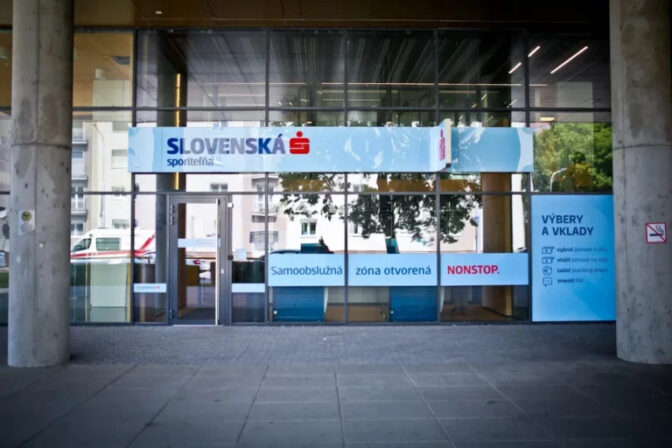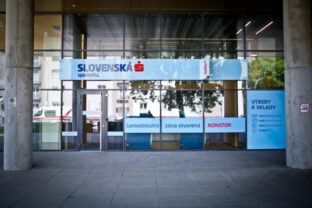BRATISLAVA, November 2, (WEBNOVINY) — The Ministry of Finance disagrees with the proposal for introduction of special duties for banks initiated by deputies from the opposition party SME-SD. The Finance Ministry does not recommend its approval after consideration of benefits and risks of the new proposed legislation, said spokesman for the ministry Martin Jaros. “The proposal does not take into consideration the ongoing discussions in Europe, it includes technical imperfections and most importantly, it is based on wrong calculations and ignores negative impacts on citizens and the economy. Considering the fact that its submitters did not undertake a similar step during the four years they were in power, we may say that it is just an attempt to win more political pints,“ said Jaros.
The opposition SMER-SD proposed to impose a new duty on Slovakia’s banking houses, which should pay a compulsory levy of 1.35 percent from a portion of liabilities of individual banks to the state budget as of next year. SMER-SD chairman Robert Fico believes that the state might collect additional EUR 186.1 million next year, which represents approximately the same amount as the government of Iveta Radicova plans to gain by hiking the value-added tax rate by one point to 20 percent. Banks immediately expressed their disapproval claiming that such levy would affect common clients the most.
The Finance Ministry considers the suggested rate unreasonably high compared with other countries that have already introduced similar levies. The duty at such a high level could have significantly negative impacts on the banking sector and the whole economy of Slovakia, according to the Ministry of Finance. It can be expected that banks will compensate such a substantial intervention in their balance sheets by increasing interest rates and fees or departure to countries with a more favorable business environment. “The reasons for this concern will intensify when right numbers will be used in calculations instead of those, which the SMER MPs initiative is based on,” said Jaros. The Ministry of Finance claims that MPs from SMER used incorrect data on the volume of debt in the banking sector as of end June 2010. After verification of data and subsequent calculation, collection of such tax would amount to almost EUR 400 million, which is more than double of the predicted sum.
The Ministry of Finance further states that the submitted draft bill does not include any clear definitions, such as, who are payers of the new tax and what is the assessment base for its calculation and it also lacks clearly defined process of tax audit or collected of owed payments and interest on late payments. The tabled bill proposes inclusion of foreign institutions among the taxpayers, which is in conflict with the ban on exterritoriality of legal provisions, according to Jaros. Such levies should not apply to banks that operate in Slovakia without a banking license on the basis of a so-called uniform passport. The given subjects are seated abroad, are not subject to supervision in Slovakia and do not pay income taxes here, so Slovakia cannot impose levies on these subjects.
Introduction of similar provisions is no exception in the European Union but with regard to the ongoing discussion on introduction of a European-wide banking taxes or fees, it would be Slovakia’s rushed step, according to Jaros. Regarding the unfinished discussion at the EU level it can be assumed that states that have introduced similar fees will subsequently have to adapt to the frame passed by the European Commission. Slovakia is currently analyzing all aspects of the introduction of this obligation. Many states spent substantial sums on rescue programs for banks during the crisis and so now banks are expected to pay special taxes and fees, explained the Ministry of Finance. “However, the Slovak banking sector is stable and profitable despite the crisis, which is also a result of stabilization from ten years ago during the first Dzurinda’s government. So the special tax regime is not in order,” added Jaros.
SITA












